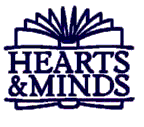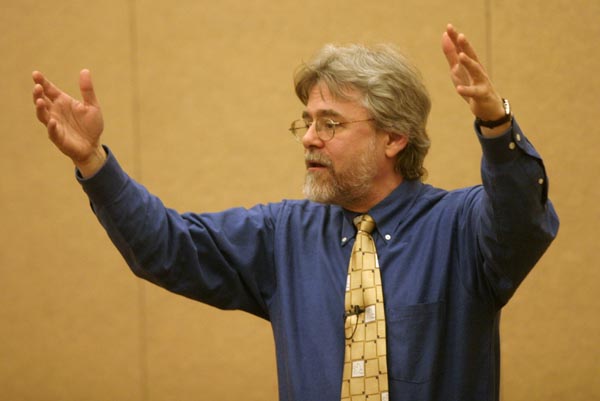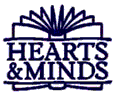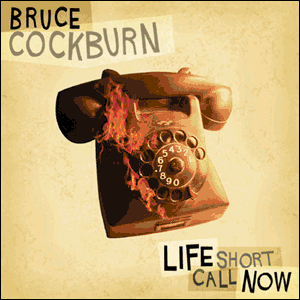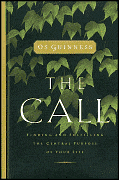Random good books from OCBP: A window into...

Is a quickly dashed-off list of stuff we sold at OCBP a window into the soul of today's student leaders or mostly a picture of the books we most promoted? I had some nifty pictures of me cajoling said young evangelicals into buying certain books, and other shots of the goofy array of display options there at Wesley Avenue house (that I alluded to in my last posting.) I've skipped the shots and thought I'd rather report on a handful of the fun books students took. While it may be a window into their tastes, it surely illustrates the front-lines of the book work we do here at Hearts & Minds and I hope you find it interesting.
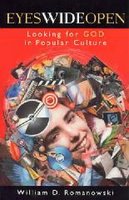
Of course pop culture stuff often is always exciting, and another old OCBP speaker, Bill Romanowski, has the standard introductory book in that field, Eyes Wide Open: Finding God in Popular Culture. We took a stack of those, natch. Just to be ornery, we placedbeside that stack a few of the new anniversary edition of Amusing Ourselves to Death (the new forward by Neil Postman's son is a treat; Dr. Postman's introduction is nearly worth the price of the book itself, and I was going to cite it in my lectures.) In the classes I taught, we talked a bit about learning the skills to use spiritual eyes to discern the underlying messages presumed in textbooks, articles, art and cultural artifacts and used as an easy example the way advertising pushes certain ways of seeing the world. Creepy values of the American Dream subvert us and what we hear in Sunday sermons, and I showed a few samples. Sam Van Eman's book, On Earth as it is in Advertising: Moving from Commercial Hype to Gospel Hope is a must-have resource for those thinking about such cultural discernment. There were a few communications and PR majors, so Q. Schultze's fabulous Communicating for Life: Christian Stewardship in Media and Community is the essential standard for a Christian perspective in mass media. I showed a few guys his deeply thoughtful and (I think) very important book on the spirituality of information technology---Habits of the High Tech Heart which offers ways to nurture virtues that can sustain a humane and human use of computers and other modern technologies. One smart guy bought, one, I think. Today's young adults, of course, grew up on this stuff and, to my concern, they seem not too concerned about the downsides or ethical imperatives of the forms and structures of this stuff.
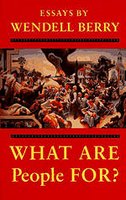
Wendell Berry's "Why I Don't Use a Computer" from What Are People For? raised some eyebrows, but I was glad that a few folks bought a collection or two of his essays, a couple volumes of his poetry. We take his stuff everywhere we go, and have for years!
Art majors saw Calvin Seerveld's wise books, and I think we sold one of Art and Soul (perhaps the best book to start with for thoughtful artists wanting a faithful interaction), written by Jubilee speaker Adrienne Chaplin, Dr. Seerveld's replacement at Toronto's Institute for Christian Studies. The very brief, very nice, brand newArt for God's Sake (Philip Ryken, pastor at 10th Presbyterian in Philly) was an inexpensive starter for a few. Two musical theater majors were happy to see books on music (A Song to Sing, A Life To Life: Reflections on Music as Spiritual Practice by Don and Emily Saliers---he, a high-church liturgist and theologian of worship and she a rock star from the Indigo Girls---is a personal favorite.) A few of the U2 books sold, too----I hope folks are tiring of the helpful Christian studies of these guys; some students still seemed surprised to see this kind of matieral since many "Christian" bookstores don't stock things like Religious Nuts and Political Fanatics: U2 in Theological Perspective. One fun seller this year was You've Got to Have a Dream by Ian Bradley--- a great new book which explores religious themes in the history of popular Broadway shows from old Gilbert & O'Sullivan through the 70's era, to Cats, Miss Saigon, and Les Mis... (The title, of course, is from a song in South Pacific; thanks for singing, Liz!) What a delight that theatrically-gifted students can explore these themes together with a book like this! .
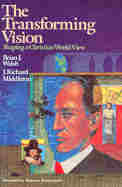
Of course we did our share of pushing worldview stuff: Walsh & Middleton's The Transforming Vision remains one of our all time favs and traces the history of the rise of dualism as simply as any book we know, making it essential for anyone wanting to delve seriously into the call of "academic discipleship" and the reformation of scholarship. Nancy Pearcy's Total Truth is a biggee in this field, too, and the new study guide in the back helps. Al Wolter's Creation Regained was cited occasionally and I think a few students will benefit from his "structure and direction" chapter, especially. The new chapter--linking Newbigin's missiology and N.T. Wright's narrative view of Scripture--makes getting the new edition well worth it. I usually take all sorts of cultural criticism, and stuff like Peter Berger, Lakhoff's Metaphors We Live By, Bruggemann's The Prophetic Imagination, some emergent stuff, and a number of oddball books---Supper of the Lamb or Fast-Food Nation or Technopoly and Albert Hsu's new Suburban Christian for those wanting something just a bit different that relates faith and our contemporary cultural forms.
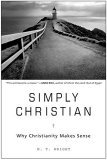
Speaking of N.T. Wright, his book on Paul and his book on the authority of the Bible, tellingly, rose no eyebrows. And I didn't sell any, either. But his new Simply Christian: Why Christianity Makes Sense was very interesting to a few students who had thoughtful friends who needed a clear overview of the faith, written for seekers and yearners, but who find, for reasons that may be obvious, Mere Christianity a bit too heady or dry. Wright wrote Simply Christian to show how the grand Biblical drama---with his helpful take on the flow of the narrative and hope for new creation---could be the worldviewish framework to make sense of our post-9-11 desire for the world to be made just, and of our post-modern confusion about gender to be made right. We all have these longings--a theme of Lewis, you recall--and Wright shows that Biblical faith is the relevant Story to make sense of these desires. It is a grand book and if it were not still in hardcover, I could have sold even more for these folks to give to their interested friends.
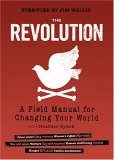
Rich Christians in an Age of Hunger became an important resource for those wanting the Biblical basis for social concern; books on race, urban ministry, the stuff of Shane Claiborne and Relevant's new The Revolution: A Field Manual for Changing Your World (a handbook for activism on a variety of human rights, social justice and peacemaking causes) sold well. Gary Haugen will be at Jubilee next year, so we pushed The Good News About Injustice. It is a book I wish we could sell everywhere we go!
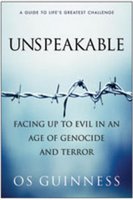
The Call by Os Guinness is one I take nearly everywhere I go and I was happy to see their interest in his work. I hope you don't tire of me saying so. We sold a couple of Unspeakable on the problem of evil---my, my, what an important resource as we attempt to be faithful in our times---and I tried to introduce this younger generation to his esteemed work. I think somebody even bought Long Journey Home and I was glad that she would give this balanced and thoughtful overview of the quest for meaning and truth to some sharp seeker.
A handful of titles sold on integrating faith and learning, stuff on college as such, and navigating faithfully the assertion of a Christian view in the pluralistic university. This was, after all, the topic I was asked to address. I assume you know the work of James Sire, for instance, which is a good example of the call to the Christian mind. (I sold a few of the handsome little book I blogged about last week, The Mind of God by James White.) Happily, I spoke with nearly every student about their major, and attempted to find books that related----we sold at least two books on mathematics, one on science, a few on business, one on special education, another on teaching faithfully in a public school. Students desire to bring their faith into the classroom as they think critically about how God might want them to consider and frame the ideas about their majors. To sell a Christian book on the philosophy of technology, say, or a Biblically-informed view of nursing, or athletics or political science just makes my day. Please pray with us that the slow work of reading and embracing these books would bear much fruit in the years to come!
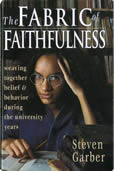
Of course a couple of books on post-modernism sold---we were happy to show Messiah College professor and Hearts & Minds friend, Crystal Downing's new book, How Postmodernism Served My Faith and Jamie Smith's great little set of lectures given at L'Abri, Whose Afraid of Postmodernism?. (Stay tuned in a day or so for some comments on that major new work!) On the topic of Christian learning and faith development as a college student, we obviously promoted Steve Garber's Fabric of Faithfulness. I mentioned that in my last post, since Steve was the speaker following us at the Project. Pray for him today, since he's holding forth there now. I hope these fun and feisty students are able to deeply resonate with his caring and important teaching. He is, as you know, a dear friend, and I think his book to be one of the most important I've ever read.
And, of course, of course---my little claim to fame on the back of a book: my blurb is on the back along with Marva Dawn, Walt Brueggemann, N.T. Wright and other big-wigs---Colossians ReMixed: Subverting the Empire the best Bible study book I've read in ages, a last year's best book that I am still unbelievably taken with. What a provocative and serious study of culture, politics, philosophy, apologetics, environmental studies, all mixed in by way of a radical and creative exegesis of the New Testament powerhouse of an epistle, Colossians. Way to go Walsh & Keesmaat! Not as many students bought this, my recommendation or not, as I would have wished. Maybe later.
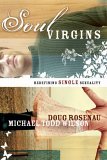
Lastly, as if this isn't heady stuff isn't enough to illustrate the kinds of favs we promote at these workshops with the best CCO students we can find: books on personal growth, relationships, sexuality, gender roles and such always have great appeal. Although some of the students come from denominations that do not ordain women, we promoted evangelical feminist work like Elaine Storkey (The Origins of Difference) or Mary Stewart Van Leeuwen's Gender and Grace, still a book that we think to be absolutely essential. I don't always agree Frederica Mathewes-Green's traditionalist perpsective, but one can hardly find a better written and more interesting collection than Gender by the thoughtful Orthodox writer who is always fascinating and enriching. I wish more students followed her stuff. The new book Soul Virgins by Doug Rosenau and Michael Todd Wilson is a good study of the details of young adult sexuality; of course Lauren Winner's Real Sex: The Naked Truth About Chastity, now in paperback, was the best seller of the week. (And, thankfully, since it is by far the best book on the subject! Her other two books were OCBP big sellers, too! Hoo-ray!)
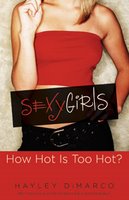
Although light-hearted with fun (retro) pictures, Sexy Girls: How Hot is Too Hot? by Hayley DiMarco caught some attention, too. So did the similiarly colorful Technical Virgins, that at least one young lady found very surprising (guy's get turned on by stuff like backrubs? Geesh.) Another H&M fav, reviewed at our website a year ago, Wanting to Be Like Her: Body Image Secrets Victoria Won't Tell You by Michelle Graham was snapped up. I wish I could have taken more as it really is one of the most helpful books for young women that we know about. More academic, and the best semi-scholarly book on the subject is Lillian Calles Barger's Eve's Revenge. Stuff on eating disorders, date rape, and other sad topics are usually picked up, too, and so much comes down to this intimate and hard aspect of young adulthood: emerging faithful and whole as an embodied and gendered person who knows she or he is made in God's image.
Which, by the way, is the theme of the other largest seller of the week: Brennan Manning's Abba's Child: The Cry of the Heart for Intimate Belonging. Alongside standard books on spiritual formation, prayerfulness, centering---one gal there knew Richard Foster personally--and such, Manning speaks the language of today's youth, insisting we can be authentic and real in community when we are convinced our abba calls us beloved. Thanks to Shelby, especially, for reminding students of this foundational truth and for recommending this deeply relevant title.
The last stretch of the OCBP---Tibbs & Campbell on racism, Borger on cultural transformation through academic discipleship, Garber on "reading the Word and reading the world"---are surely based on the earlier weeks; an overview of the Biblical narrative, a solid treatment of the doctrines of grace, Shelby teaching about God's love for us as it enables us to be responsible leaders. Each author mentioned books, and our book display showed off more. Thanks to each and every participant in the OCBP---the planners, those who donate, the staff and of course the great gang of students. We count it a privelege to be a part of it all. And we're glad you liked our books.
